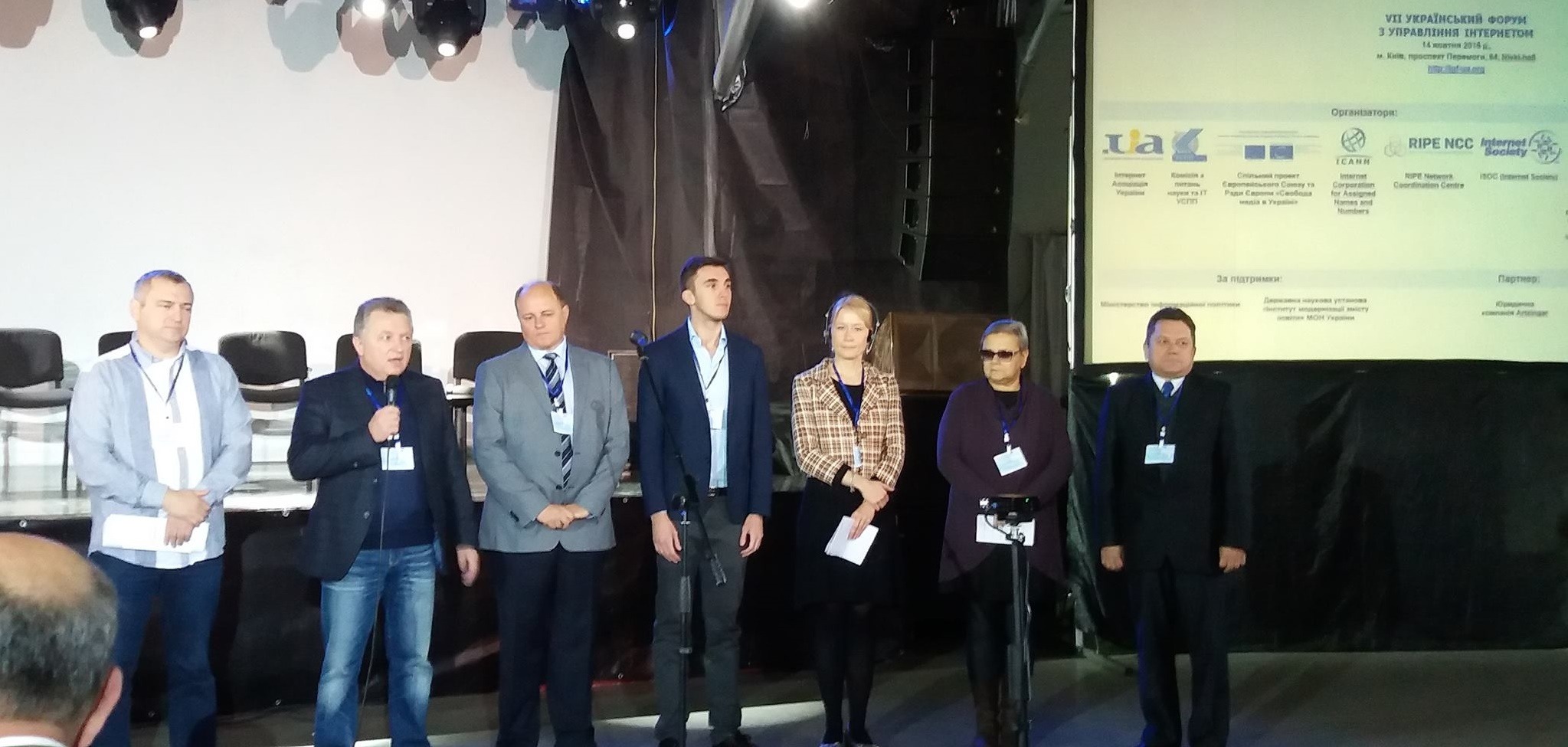The 7th edition of the Ukrainian Internet Governance Forum (UA-IGF) took place in Kiev on 14 October 2016. The event attracted some 150 participants despite the fact that October 14th is a public holiday in Ukraine.
This year’s UA-IGF piloted a new interactive format with minimal slide shows, lively moderated discussions and an “open mic” for Q&A. This approach worked well with the Ukrainian community – we witnessed some juicy debates and questions from the audience were abundant.
So what did the Ukrainian community debate about?
Role of Governments in Internet Governance
The underlying core question was: to what extent should governments intervene in Internet development through regulation, policy and also investment? While the Ukrainian Internet Association argued that government should be involved as little as possible, theNational Telecommunications Regulator emphasised the protection of Internet users.
Governments can, of course, make a huge positive impact, for instance, by promoting Internet access in their respective country. Specific areas of activity typically include strategic planning, regulatory reform and management of spectrum licences – all of these discussed at the UA-IGF.
It was also agreed that the government should play a role in the space of cybersecurity and data protection. However, the details on how to counter the complex issues of cybercrime and surveillance in a consistent manner are still being defined.

Rights and Freedoms Online
The much-debated balance between security and online freedoms is a concern also in Ukraine. Monica Horten representing the Council of Europe (CoE) discussed the role of Internet Service Providers (ISPs) holding the tools both for surveillance and for protection of correspondence. In parallel, she emphasised the judicial oversight of surveillance as stated in the CoE standards.
The local stakeholders defending online freedoms raised specific concerns regarding the recent trend of botnets and trolling used as part of political campaigns. These kinds of methods compromise the effectiveness of democratic processes and may hamper local Internet traffic.
Overall, most of the topics at the UA-IGF were familiar but crucial to the development of the Internet. Many topics were controversial, and yet the local stakeholders – government, business and civil society – agreed to discuss and disagree on these openly and in public. This is an important step towards common solutions and sustainable development of the Internet.
